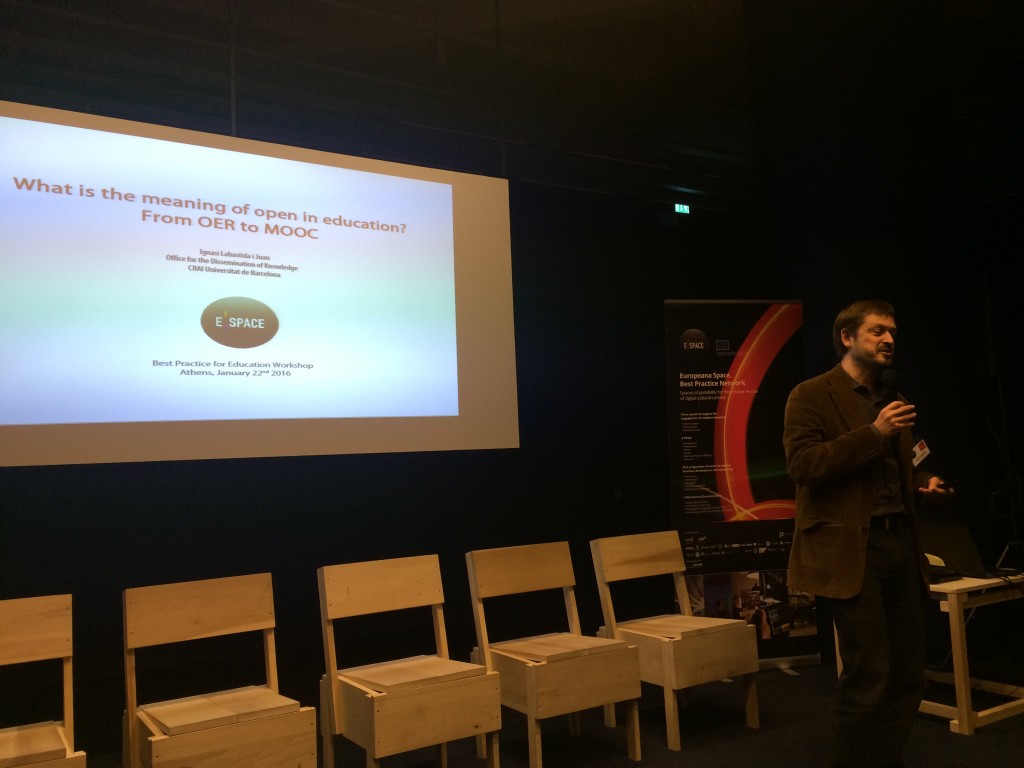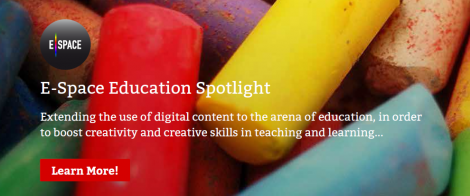|
Digital meets Culture https://www.digitalmeetsculture.net/article/e-space-for-education-stories-from-the-athens-workshop/ Export date: Thu Apr 3 22:39:01 2025 / +0000 GMT |
E-Space for Education: stories from the Athens workshop by Barbara Dierickx (PACKED) On January 22nd 2016, the EuropeanaSpace Education team gathered in Athens. The day leading up to the Hack the Book event our partner Onassis Cultural Centre (OCC) co-hosted a public workshop, focussing on educators. Within E-Space, bridging the gap between heritage and education is a main project focus. The project as a whole offers a wide range of services to the educational sector through its activities:
In this first educational workshop, we focussed on the five educational demonstrators that have been developed. These applications put theory into practice, and look at how (digital) cultural heritage may be turned into a valuable asset than can be used in a classroom. An overview of the different demonstrators is given on our thematic website: http://www.europeana-space.eu/education/. We should make a small correction, as ‘classroom' may actually be a too narrow description; these demonstrators may also prove functional in other settings. The team behind the demonstrator on Irish poetry and folk takes for example is looking at local libraries as a scene for the programme's use. Sometimes public readings of said stories take place here, and the group of attending children could very well be exposed to the demonstrator application to interact more with the stories' texts and illustrations. These different applications have been developed in an almost-ready modus. During the workshop, feedback on them was gathered so that the developing teams could upgrade them over the next project weeks. In order to introduce this work a bit more, the day was started with a couple of introductory keynotes that set the scene. We had project partner Thodoris Chiotis, who introduced the Cavafy Archive and its step into the digital realm. Next Prodromos Tsiavos discussed the difficulty in maintaining openness and diversity in the global MOOCs environment, and how this was handled within OCC. The story of MOOCs continued with Ignasi Labastida (University of Barcelona) who talked about the meaning of ‘open' in education. And to close this session, Alek Tarkowski proposed a Polish project approach to going open in education (and using Creative Commons licenses). In the next part, the focus shifted to the five E-Space demonstrators:
They were all pitched by their developing team in terms of scope, functionality and their practical application in an educational setting – ranging from specified arts history masters to less formal interaction with primary school children. During lunchtime there was the possibility to interact with the demonstrators, and provide feedback to the teams.  In the afternoon some time was reserved for the presentation of the plans on a MOOC, created in and based on the findings of the E-Space project. This MOOC, under supervision of Professor Frederik Truyen, Faculty of Arts KU Leuven, will be released in the coming project months. The day was closed by a couple of short best practice presentations; successful examples of how heritage is used in educational settings in Europe. E-Space partner Barbara Dierickx (PACKED vzw) presented the Flemish platform Testbeeld whiwh is giving access to audiovisual heritage for teachers; Dr. Balaouras Pantelis from the Greek Academic Network showed the Greek Open Courses Program. On May 13 2016, E-Space is planning a wider event with an educational focus. We aim to include Commission speakers and representatives from Europeana and other relevant organisations. Should you be interested in the event as a contributor or participant, do not hesitate to contact us. |

















